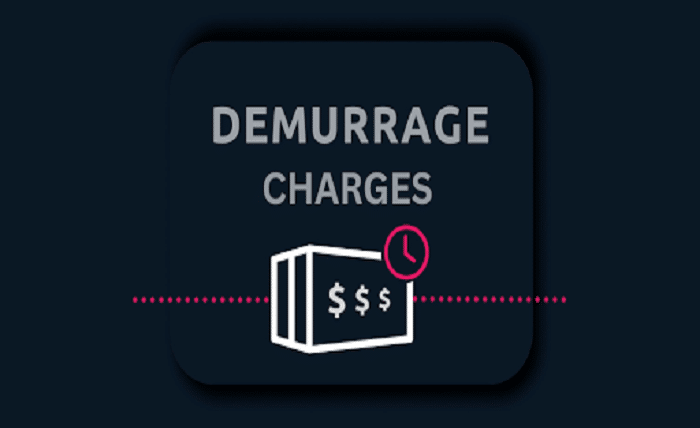Demurrage Charges: What They Are and How to Avoid Them

Shipping and logistics are a complex world in which time is, quite literally, money. One of the main costs that may arise when things do not go according to plan comes in the form of demurrage charges. These fees can accumulate quickly and turn what seems like a very simple shipping process into an expensive ordeal. So what exactly are demurrage charges, and how can businesses avoid them?
In this blog, we will be discussing demurrage, its financial implications, and the best strategies to avoid or minimize such costly penalties.
What Are Demurrage Charges?
These are charges collected because shipping containers or vessels overstay free time allocated for loading or discharge at a port or terminal. The term originates from the maritime industry but applies broadly across shipping logistics. Essentially, it’s the cost of overstaying the time agreed for the movement of goods at a facility, leading to port congestion and delayed operations.
Usually, most shipping contracts provide for free days, which often range between 3 to 5 days, whereby one can load or unload a container from a vessel. When this free time offered is not utilized by the shipper, consignee, or freight forwarder, charges for holding up space and causing delay are regarded as demurrage.
How Does Demurrage Work?
Free Time:
Whenever a cargo container or vessel reaches a port, then a specified period is granted for unloading or loading goods—that is called “free time.” It varies with the shipper and the carrier’s agreement.
Expiration of Free Time:
When free time expires without clearing the container or a vessel, demurrage charges start piling up day-to-day. Their aim is to discourage delay and keep the goods moving through the port.
Tariffs on a Day-to-Day Basis:
Demurrage fees usually increase the longer a container or vessel remains at the port, creating a steep financial incentive to clear cargo quickly. The tariffs depend on the port location, shipping lines policies, and the container size.
Types of Demurrage Tariffs
Demurrage tariffs could be of the following types.
- Container Demurrage: The charge is incurred when the containers are not collected from the port or terminal within the free time agreed on. This is the most common form of demurrage and could be applied to any import/export container.
- Vessel Demurrage: When a vessel remains at the port longer than scheduled due to delays in loading or unloading, vessel demurrage charges are levied. These fees are usually much higher because they reflect the opportunity cost for the shipping line, which could otherwise use the vessel for other shipments.
The Financial Impact of Demurrage Charges
Demurrage charges can easily add up, which is, thus, very costly for companies engaged in international trade. Charges become increasingly harsh as time passes in the port when the container or the vessel sits idle. The problem might cause some companies unforeseen delays, which would amount to tens of thousands of dollars in demurrage fees, eating profit margins and increasing shipping costs.
The following is why demurrage can be costly:
- Daily Rates: All charges for demurrage continue to increase with each passing day. They have been known to double within a few days. What initially appears to be a cost of little consequence may eventually become enormous.
- Supply Chain Disruption: The delay will cause serious setbacks in the supply chain, which will result in loss of inventory, loss of sales opportunities and unhappy customers.
- Unpredictability: Unforeseen circumstances such as customs delays, port congestion, or miscommunication with transport providers can cause unexpected demurrage costs.
General Causes of Demurrage
The following are common causes of delays which may lead to demurrage fees:
Customs Clearance Delays:
Failure to complete documentation or inaccurate information may necessitate more time than actually allocated to clear customs. Containers, in such instances, might exceed the free time at the port.
Overly congested ports:
Highly congested ports characterized by tremendous volumes of shipments or very few labourers will definitely delay the discharge or lifting of containers. This increases the likelihood of incurring demurrage charges.
Miscommunication:
There can be a miscommunication between the shippers, consignees, freight forwarders, and port authorities, which may invite demurrage or a wrong understanding of when and where they should collect their goods.
Poor Planning:
The delivery at the port is not planned. As a result, containers wait for days before trucks or other modes of transport become available to them.
How Do You Avoid Demurrage Charges?
Although most of the time they could be prevented, demurrage fees are incurred only in specific circumstances and thus involve planning and coordination. Following are a few strategies through which demurrage charges may be minimized or avoided altogether.
Accurate Documentation:
Documentation should be completed and submitted on time, especially when clearing customs. Paperwork hold-ups may prevent the timely release of cargo from a port.
Work with Reliable Partners:
Get shipping lines, freight forwarders, and port agents who are experienced and efficient with regard to the handling of cargo. Good relationships with reliable partners can make logistics smoother and reduce the chances of delays.
Track Your Shipments:
Use shipment tracking tools or means to monitor the progress of your cargo. Knowing when your containers will arrive is instrumental in coordinating pickup at the most ideal time, reducing the risk of incurring demurrage charges.
Negotiate free time extensions:
Negotiate to include free time extensions in the contract if you anticipate a delay in cases where you will use shipping lines. This also gives you more manoeuvring time in case something untoward happens.
Advanced positioning of Transportation:
Move your transport trucks or rail in advance of the arrival of your shipment to eliminate delays at the terminal for containers. Advanced logistics ensure you are able to take cargo out of the port as quickly as possible.
Use Off-Dock Storage:
For those events that cannot be avoided, make use of off-dock storage facilities to move containers out of the terminals. Though this will cost additional handling fees, they are relatively cheap compared with demurrage fees in busy port terminals.
Clear Communication:
Lines of communication with all the stakeholders involved in the shipment process should be maintained. All of them should have proper knowledge about the timelines, responsibilities, and possible delays.
Conclusion: Demurrage is Avoidable with the Right Strategy
Although lots of money can be saved when demurrage charges are properly managed, huge financial drains can be incurred on the business front when businesses fail to manage the same properly. However, proactive planning, careful observation of shipments, and communication will be the best ways to avoid demurrage charges in most cases. Whether it is a question of container demurrage or vessel demurrage, understanding the logistics process and implementing strategies to reduce delays is key to keeping your shipping costs in check.
You can avoid all financial pitfalls of demurrage by staying updated and organized and ensuring a smoother shipping experience with costs lessened. With Amazon Global Selling, you can opt for hassle-free shipment of your goods across borders. Amazon also has a SEND option, which allows you to ship directly to international fulfilment centres.




